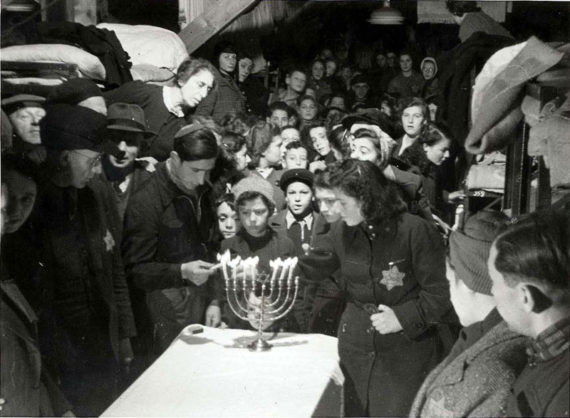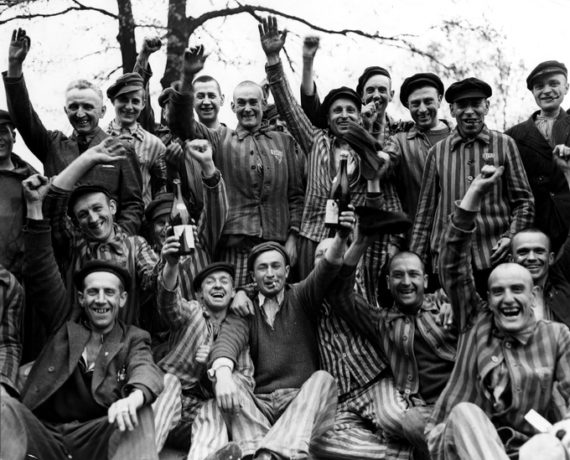Pammy Brenner submitted a bunch of questions to the blog - here are some responses:
Hello Pammy,
These are wonderful questions. I’ll try to address each one but the most
important thing I’ll do is direct you to sources which will be far more
helpful.
1. How does one reconcile science with Torah? To
what degree can one accept scientific beliefs?
This is a broad sweeping and great question and one that all religions in
the world (most likely the majority of people on Earth) have to address.
Paraphrasing a friend of mine getting a PhD in cell
biology in NYU, there are many theories raised and rejected in scientific research.
Many “facts” are later disproven. So, it’s important to think of science as a
dynamic area rather than something fixed.
Also, some areas of science work beautifully with
the Torah and other areas of science pose, at least at first glance, a
challenge to Torah. The scientific fact that the moon waxes and wanes and the
sun setting work fine with the Torah. But the age of the universe, evolution,
and miracles do require some more thought.
Let me be clear, there are many sophisticated and
learned Jews who believe in science and the Torah. I do strongly believe one
can reconcile or live comfortably in both worlds.
Before I go
on I urge you to watch the debate at this link. The debate is between R. Lord
Jonathan Sachs, the chief rabbi of England, and Richard Dawkings, a scientist
and ardent and public atheist. Although they raise many fascinating issues
their central debate is about if or how science and religion can coexist.
I’m going to address three of what I believe to be
the most challenging religion-science issues:
1. Age of the Universe: to quote people smarter than I (maybe R. Lord Jonathan Sachs)
science tells humanity the “what” and “how” and religion tells humanity the
“why.” Or, to put more poetically: science tells humanity how we got here and
religion tells humanity what to do once we’re here. Hence, the goal of prakim
1-2, the creation story, in Sefer Bereshit, is not to tell us how single celled
organisms became dinosaurs but rather it is meant to teach us values and
religious messages.
Why would G-d mislead us and tell us the world was created in
seven days if it wasn’t? I don’t have a definitive answer but four thousand
years ago a more detailed version may have been too confusing, or to convey the
values most effectively a shorter seven day version of creation was necessary.
But, most centrally, once one makes the paradigm shift that the Torah isn’t
primarily concerned with science this becomes a less bothersome question.
2. Evolution: This answer
is for evolution but also for the age of the universe question. We believe that
the world is 5773 years old. However, science declares that the world and the
evolution of humanity took billions and millions of years respectively. One
approach is to claim that each day of early creation was really a stage of
creation. So, while we have 5773 years, that is from a point when Adam had
evolved from some less developed being. Hence, billions of years may have
elapsed from day one to day six.
3. Miracles: There seem to
be two schools regarding how to understand miracles. Some rationalistic
thinkers claim that G-d may have woven miracles into the natural order. This
seems to have great support from the Mishna in (Avot 5:6) where it says that
G-d created certain miracles right before the end of the six days of creation.
If so, while miracles break the normal order they do not break the natural
order. A more common approach is that indeed G-d who created the world can
suspend elements of the natural order in certain instances. I don’t think that
this needs to be a fundamental conflict. One can champion miracles and still,
in 99% of cases, believe that science guides the world.
It should be noted that the answers above assume that one need not reconcile the
conflict. However, there are number of Jewish scientist who attempt to fully
reconcile science with religion.
Here are some books to read which adopt the
“reconcile” approach:
1. Dr. Gerald Schroeder- Genesis and the Big Bang,
The Science of God and The Hidden Face of God
3. How closely should we follow the Torah Umadda
philosophy? How much "Madda" are we allowed to let into our daily
lives? How much are we supposed to incorporate into our Torah views of the
world?
Early on in my years at Gush I spent a Shabbat with a friend who was in
a yeshivish yeshiva. This was a yeshiva that looked very unfavorably upon general
studies. On Friday night I ate by the head of the yeshiva. Immediately, upon
telling him that I was learning at Gush, he commented in a mocking tone: “Oh,
the literature yeshiva!” I was shocked but I learned, and since then I’ve come
to see it more clearly, that most religious Jewish communities look down upon
college education and are staunchly opposed to non-practical general studies,
English, history, etc.
Over the years my understandings and feelings of this topic have evolved
but I think what I experientially knew to be true in high school is what guides
my thinking about this topic today.
People often begin this conversation the wrong way. People ask: is it
muttar or assur to read Shakespeare? The starting point should be different:
how can you be the best human you possibly can be? And, of course, “the best
human” from an Orthodox perspective means having a deep relationship with G-d.
However, what does it mean to have a relationship with G-d? I won’t
fully answer it now but it must include becoming the best person possible. A
person who is deep and passionate and caring and honest etc. etc. etc.
How do you get there? For some this means full time learning. For others
it means chessed. For others it means making tons of money and giving it all to
tzedakah. For others it means maddah.
There is no chiyuv to learn maddah. And in fact, for many people I
wouldn’t push them to learn maddah. But I do believe that many of those people
could gain from maddah. Maddah is a way to work both the mind and heart in
powerful ways.
It is clear, however, that Torah is both the most direct way to a
relationship with G-d and to the development of one’s humanity. And it is this
point where people often start the conversation: How does one justify reading
Shakespeare when a more direct root, Torah, exists? Each person must craft a
meaningful and honest balance of Torah, the most direct way to reach G-d, and
maddah, a less good way to reach G-d. Some people are wired in a way that
hiking in nature creates inspired moments and others a beautiful poem.
Let me highlight this with two personal anecdotes:
1.
When I was younger I
went with my family to Les Miserables (now it is something I wouldn’t do
because of my understanding of the halachot of kol isha). While my guess is
that most people know the storyline I’ll summarize it quickly. Jean Valjean,
the protagonist, who suffered in prison for nineteen years for stealing a loaf of
bread, is caught stealing from a kind Bishop who invited Valjean to spend the
night with him. The Bishop defends Valjean against the police and, in a moving
song which ends up inspiring Valjean to change his life, the Bishop sings:
“What we have we have to share….” Chazal certainly speak about the value of
generosity. But the Bishop’s (a Bishop mind you!) beautiful voice in the
context of a very moving story allowed this phrase to impact me greatly. When I
think about themes of chessed and giving this phrase comes to
mind. I now know more sources and more halachot of chessed etc. but the
emotional pull to do chessed comes in some part from what I experienced while
watching Les Miserables.
2.
The Tannach and
Gemarah are full of discussions about death and mourning. Some of them I know
and some I don’t. However, reading Edgar Allen Poe’s The Raven gave me
both intellectual and, more importantly, emotional insight into the haunting
feeling of pining for a lost loved to return.
An amazing article which addressed this topic in a thorough and sophisticated fashion is R. Lichtenstein's "Torah U'Madda: Congruence, Confluence, and Conflict" printed in Judaism't Encounter with Other Cultures: Rejection or Integration? (1997).
Good luck,
R Yair Hindin









